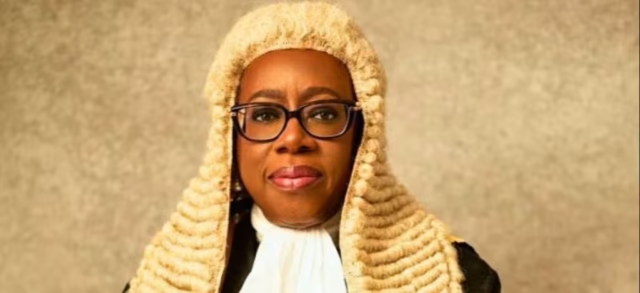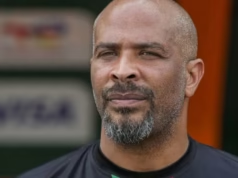The National Judicial Council(NJC) has pushed back against a proposed bill to give the Nigerian Bar Association the power to punish and sanction erring judges, citing concerns over the constitutionality and practicality of such a bill.
This is coming after the House of Representatives on March 25, passed a bill seeking to amend the 1999 Constitution by allowing provisions for the removal of corrupt judges from the judiciary.

Responding to the bill, Kemi Ogedengbe, Deputy Director of Information of the National Judicial Council, questioned the practicality and legality of such a move, citing constitutional constraints and protocol requirements.
The proposed bill suggests that the Nigerian Bar Association (NBA) should investigate complaints against judges, hear their response, and then decide on the next course of action.
In an interview on Sunday, the National Judicial Council Director stated that the Nigerian constitution placed the obligation and power to discipline judges solely in the hands of the National Judicial Council, emphasizing that the process of sanctioning erring judges is one that its regulated by specific protocols including presentation of evidence.
The National Judicial Council Director said “The constitutional requirements place the discipline of judges in the hands of the NJC, and it doesn’t just come with the NJC—it has procedures that must be followed. If a judge is deemed to be corrupt, you can’t just put up a statement that a judge is corrupt. It must be backed up with evidence.”

“Either the judge is caught in the act or you have evidence against the judge. Once it happens that way, the dictates of the Constitution will now be followed to deal with such a corrupt judge. That’s what the Constitution says,”
Further questioning the practicality of the bill she said “The question is, who are those corrupting the judges? A crime does not occur in isolation; there are always accessories. Who are these accessories? Are they members of the public, lawyers, or medical doctors? Or are they lawyers themselves?”
“The House of Representatives’ bill will not just end there; it will pass through the Senate and the 36 state Houses of Assembly. They are going to ratify it; there will be public hearings on it. So, this is just the tip of the iceberg.
“Whether it will be able to curb corruption is what I don’t know because one person cannot perpetuate corrupt practices. There must be accessories. So, who are those accessories? Or will a judge just sit down, and they will charge him for corruption?”
“It is those accessories that we have to identify. From there, we will now know if the NBA taking over sanctioning judges will be abused or not.”

She further added that “This is just the beginning of the conversation. Whether this bill can effectively curb corruption remains to be seen. For now, we must adhere to the Constitution, which already provides a framework for disciplining judicial officers through due process.
“There is no constitutional amendment that does not involve public hearings. Every stakeholder will come to say if they support it or not. That is when we will know if this type of amendment will succeed or not. A law is not a good law until it is made perfect,” she said.
Join Our Social Media Channels:
WhatsApp: NaijaEyes
Facebook: NaijaEyes
Twitter: NaijaEyes
Instagram: NaijaEyes
TikTok: NaijaEyes





